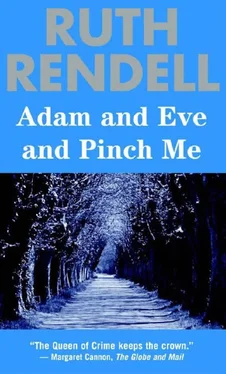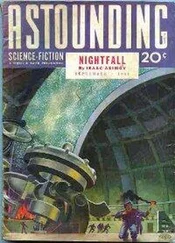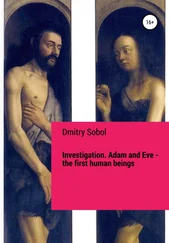“I don’t know, darling. I’ll try.” Matthew shuddered a little, not at the kiwi fruit, which were just like bits of a tree, really, or even two small furry animals, but at an overripe banana among the rest, a banana with a brown bruise and squashy tip. He turned his eyes away, remembering to keep them lowered. “I don’t think I want any strawberries today.”
“I know you don’t, darling, and no pears or peaches.”
Michelle didn’t say, Because they bruise easily, they decay fast. She knew that he knew that she knew. They moved on past milk and cream and cheese, she helping herself surreptitiously while he looked the other way. She dared not buy meat or fish; she’d go to the local corner supermarket for that on her own. Once he’d actually vomited. It was the only time they’d ventured together into the meat section and she’d never risk it again. Among the cakes and biscuits, she grabbed the things she knew she shouldn’t eat but had to. To distract herself, to distance herself, to console herself.
“Those,” he said, pointing.
He wouldn’t say “butter puffs.” “Butter” was among the words, along with “cheese” and “mayonnaise” and “cream,” he hadn’t uttered for years. He’d be sick. She took two packets of the dry, flaky biscuits. His face had become even paler than usual. In a surge of love for him she wondered just how much torment being in a food store brought him. He insisted on coming. It was one of the courage-testing tasks he set himself. One of the challenges. Looking at a magazine was another, turning the pages and forcing himself not to skip the ones with the color shots of soufflés and pasta and roast beef. Talking to people who didn’t know, watching them eat, watching her eat. They came to fruit juices. She took a carton of pineapple juice, looked at him, raising her eyebrows. He nodded, managed a death’s-head smile, all skull and teeth. She laid her hand on his arm.
“What would I do without you, my darling?” he said.
“You don’t have to do without me. I’m always here for you, you know that.”
There was no one near to hear them. “My sweetheart,” he said. “My love.”
She had fallen in love with him at first sight. Because it wasn’t the first time she’d felt like that-though her love had never been returned-she expected, with anticipatory bitterness, that once again her feeling would be unrequited. But he had been the same and loved her back with a like ardor. He was a teacher and had two degrees, while she was just a nursery nurse, but he loved her, she didn’t know why, couldn’t account for it. They weren’t very young; both of them were in their late twenties. Passion overtook them. They made love the second time they met, moved in together after a week, got married two months after their first meeting.
Michelle was-well-not thin then, but not plump either, just a normal size. “A perfect figure,” Matthew said. If anyone had asked her the secret of their love and their successful marriage she’d have said it was because they were so kind to one another. He’d have said it was because no one else had ever mattered much to either of them once they’d met.
He was funny about his food even then (Michelle’s way of putting it) but she’d always thought men quite different from women in their attitudes to eating. Really, it was just that, like most men, there were a lot of things he didn’t like. Red meat was on his poison list and all kinds of offal, shellfish, and any fish that wasn’t white-in those days, when she could joke about it, she called him a “fish racist”-sauces and mayonnaise and custards, anything “sloppy.” He was faddy, that was all. But he began to get worse, though she never put it like that. Eating disorders as real illness were just beginning to be recognized, but everyone thought they only applied to young girls who wanted to stay thin. Because they talked about everything, they sometimes discussed, in depth, his problem. How he couldn’t eat things that looked like other things. An example was rice; he’d just got it into his head that rice looked like maggots. Soon he couldn’t eat anything that had once been alive, though-thank God, she said to herself-that didn’t apply to fruit and vegetables, some fruit and vegetables. All pasta was like worms, all sauce-well, anything runny was so bad that he couldn’t utter the words that described what they were like.
Gently she asked him if he knew why. He was such an intelligent man, intellectual, sensible, practical, an excellent science teacher. It frightened her to watch him grow thinner and thinner and see him prematurely aging.
“I don’t know,” he said. “I wish I did. My mother used to encourage me to eat things I didn’t want to, but she never forced me. I was never made to sit at the table until I’d eaten something.”
“Darling,” she said, “don’t you ever feel hungry ?” She did and so often.
“I don’t think I ever have. Not that I can remember.”
At that time she had to stop herself envying him. Never to be hungry! What bliss! Only she knew it wasn’t. It was a slow wasting away toward death. Not if she could stop it, she thought then, not if she made it her life’s work to help him. That was when she got him to start taking vitamins. He was quietly acquiescent, for capsules and tablets never look like anything else. They’re hard and firm, and can be swallowed without choking. He stopped drinking milk and eating soft cheeses. Butter had gone long ago. She made him go to the doctor and went with him.
This was in the late eighties and the doctor, an elderly man, wasn’t sympathetic. Afterward Matthew called him a “famine freak” because he’d told him to pull himself together and think of the starving millions in Africa. He prescribed a tonic, which he said was guaranteed to make the patient eat. The first and only time Matthew took it he vomited violently.
Michelle made it her business to discover all the foods he wasn’t positively repelled by. Strawberries were one, provided she took the hulls out, every scrap of green. Oranges and grapefruit were all right. Fool that she was, she told herself, she’d tried him on a pomegranate and when he’d seen its interior he’d actually fainted. The fleshy red seeds looked to him like the inside of a wound. Bread he’d eat, dry plain cake, and most biscuits. Eggs if they were hard-boiled. But all of it had to be in minute quantities. Meanwhile, she piled on the weight. He knew she gorged, though she tried not to eat too much in front of him. At mealtimes, while he sat miserably resigned, picking at half a lettuce leaf, a slice of hard-boiled egg, and one plain-boiled new potato the size of a marble, she ate the same multiplied by five, plus a chicken wing and a bread roll. But when she went back to the kitchen and he returned thankfully to his computer, she filled herself up with the comfort food that consoled her for watching his sufferings: ciabatta with brie, fruit cake, Mars bars, crème brûlée, and crystalized pineapple.
Their love never wavered. She’d have liked children but none came. Sometimes she thought it might be because he was so malnourished that his sperm count had sunk very low. It was no good going to a doctor, though the reactionary old GP had been replaced by a bright young woman who was always trying to put Michelle on a diet. No one really understood Matthew; only she could do that. She had to watch his body slacken and bend, his face wrinkle like an old man’s, his joints protrude through the skin-you couldn’t call it flesh-and that skin assume a grayish pallor. At thirty she had been plump, at thirty-five overweight. Now, at nearly forty-five, she was grossly fat. While she spoke often of his revulsion from food, and they were always discussing what caused it and whether a cure would be discovered one day, he had never once mentioned her obesity. As far as he was concerned, she might still be the hourglass girl of twenty-seven he’d fallen in love with.
Читать дальше











